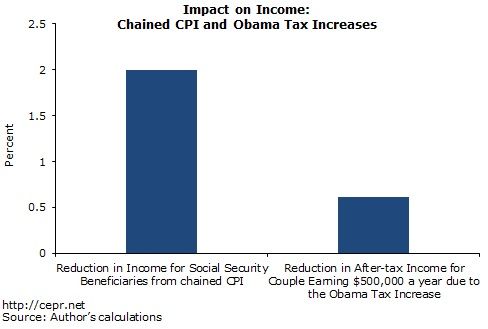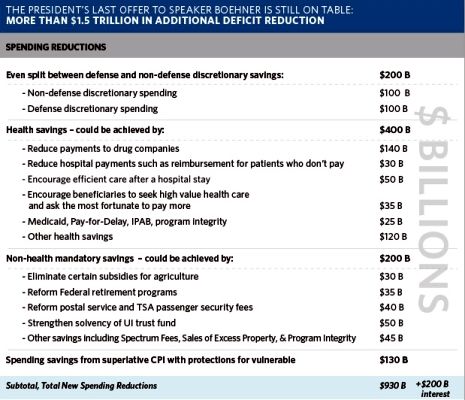Cross posted from The Stars Hollow Gazette
Before we even start to talk about the Social Security cuts in President Obama’s budget in his quest for a “grand bargain” with Republicans, bit the president and House Speaker John Boehner have admitted there is no deficit crisis. As a matter of fact, the deficit has fallen faster in the last three years than it has since World War II
In fact, outside of that post-WWII era, the only time the deficit has fallen faster was when the economy relapsed in 1937, turning the Great Depression into a decade-long affair.
If U.S. history offers any guide, we are already testing the speed limits of a fiscal consolidation that doesn’t risk backfiring. That’s why the best way to address the fiscal cliff likely is to postpone it. [..]
While long-term deficit reduction is important and deficits remain very large by historical standards, the reality is that the government already has its foot on the brakes.
In this sense, the “fiscal cliff” metaphor is especially poor. The government doesn’t need to apply the brakes with more force to avoid disaster. Rather the “cliff” is an artificial one that has sprung up because the two parties are able to agree on so little.
That’s right, the “fiscal cliff”, ‘the deficit” crisis are MYTHS.
Now here is what digby said:
Greg Sargent has frequently made the case that liberals are going to have to choose between the sequester cuts and the Grand Bargain and therefore will need to make the affirmative case for why they are choosing the sequester. [..]
And Greg is probably right that if the Republicans are smart enough to take yes for an answer, the liberals in the House will face the wrath of their Party apparatus and the president (and the liberal establishment) if they end up voting against a Grand Bargain. [..]
This, on the other hand, is a choice between two negatives. Essentially, as before, the White House and the Democratic centrists are holding hostages but this time they’re basically telling the progressives that a hostage is going to get shot no matter what: Head Start and food inspections today or the elderly, the sick and the veterans tomorrow and they have to choose which one. Why should progressives bear that responsibility? They didn’t get us into this mess.
I say they should just say no. Republicans do it all the time and everybody just throws up their hands and says, “well, I guess we’d better figure out something else.” They should hold fast and say “the sequester sucks and so does the Grand Bargain and we don’t support either one.” Most of the progressives didn’t vote for the sequester in the first place and bear no responsibility for it. (And even those who did have no obligation to defend the monster that everyone assured them had no chance of ever becoming law.) This is a failure of the leadership of both parties and progressives are not required to betray their most fundamental values and defend any of these ridiculous cuts to anyone.
Just say no. The “sequester vs Grand Bargain” is a phony construct made by man, not God, and there’s no reason on earth why any progressive should be forced to own either one. Find another way.
Now matter how you view the cut to Social Security by linking it to the Chained CPI, it is bad policy and even worse politics that will be forever linked to A democratic president, Barack Obama. He owns it. It’s too late to put that back in the can, even if the Republicans reject it out of hand. But worse than that, every Democrat now owns it, too.


